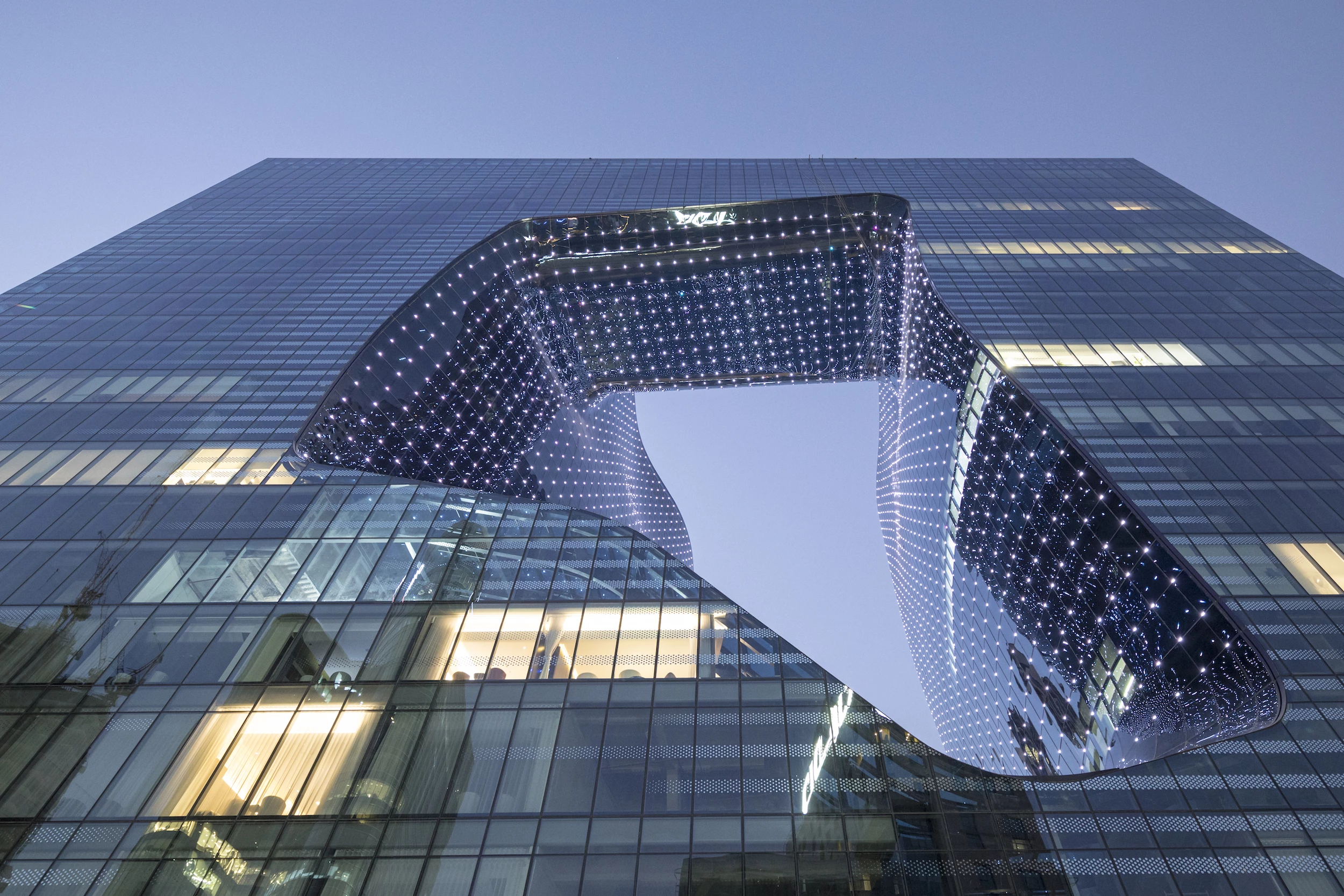Dubai is chock-full of impressive buildings, including the world's tallest, but even in that company the Opus stands out as something extraordinary. Designed by Zaha Hadid Architects, this recently completed luxury hotel takes the remarkable form of a glass cube with an eight-story void at its center.
As noted when we checked in on the long-running project last year, the Opus rises to a height of 93 m (305 ft) in Dubai's Burj Khalifa district and is reminiscent of the firm's Morpheus Hotel in Macau, China. Much like that project, it's not really one building at all, but two towers joined together.
"The Opus was designed as two separate towers that coalesce into a singular whole—taking the form of a cube," explains ZHA. "The cube has been 'eroded' in its center, creating a free-form void that is an important volume of the design in its own right. The two halves of the building on either side of the void are linked by a four-story atrium at ground level and also connected by an asymmetric 38 m [124 ft] wide, three-story bridge 71 m [232 ft] above the ground."

The Opus' exterior consists of a double-glazed facade that's made up of 4,300 individual pieces of Low-E glass (that is, glass that reflects heat, so the interior doesn't warm up too much from the sun). Its overall form was shaped using digital 3D modeling software which also identified areas that required reinforcement with tempered glass. Throughout the day, the facade reflects the sky and surrounding city, while at night a dynamic LED light installation illuminates the void.
The interior measures 84,345 sq m (roughly 908,000 sq ft), spread over 20 floors, and was designed by Hadid herself before her death, including recyclable lobby furniture and sofas with integrated desks installed – and even the bathrooms. A significant chunk of floorspace is given over to the ME Dubai luxury hotel by Melia Hotels, which has 74 rooms, 19 suites, a large gym, restaurants and bars, though the Opus also contains residences and office space elsewhere in the building.

This isn't a sustainable building by any means, but there are some nods to the environment. In addition to the recyclable furniture and Low-E glass facade, sensors automatically adjust the ventilation and lighting according to occupancy to conserve energy. A program is also in place to reduce reliance on plastic over time – one example cited by the firm is that guests are given stainless-steel water bottles instead of plastic bottles.
We reached out to a Melia Hotels representative to check the status of the hotel during the Covid-19 pandemic and they confirmed that it's open for bookings, though a few minor elements like its rooftop bar are still being finished ready for an official launch later this year. The shots by award-winning photographer Laurian Ghinitoiu are well worth checking out for a closer look.
Sources: Zaha Hadid Architects, Melia Hotels






!["The two halves of the building on either side of the void are linked by a four-story atrium at ground level and also connected by an asymmetric 38 m [124 ft] wide, three-story bridge 71 m [232 ft] above the ground," says ZHA](https://assets.newatlas.com/dims4/default/071f333/2147483647/strip/true/crop/2500x1667+0+0/resize/2500x1667!/format/webp/quality/90/?url=https%3A%2F%2Fnewatlas-brightspot.s3.amazonaws.com%2Fd6%2Fa7%2F9edec839440c9ead7b4c03bd29db%2F09-zha-opus-laurianghinitoiu.jpg)









